
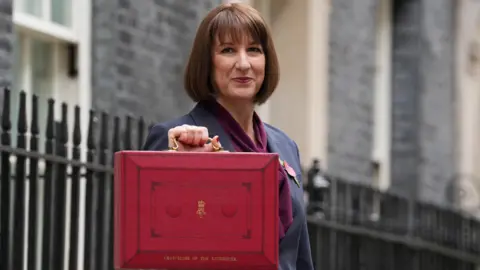 Reuters
Reuters
Chancellor Rachel Reeves is delivering Labour’s first Budget since 2010, after the party’s return to power at July’s general election.
Here is a summary of the main measures we know about so far.
Business taxes
Firms to pay National Insurance on workers’ earnings above £5,000 from April, down from £9,100 currently, with the rate increasing from 13.8% to 15%Employment allowance - which allows companies to reduce their NI liability - to increase from £5,000 to £10,500
Transport, alcohol, tobacco

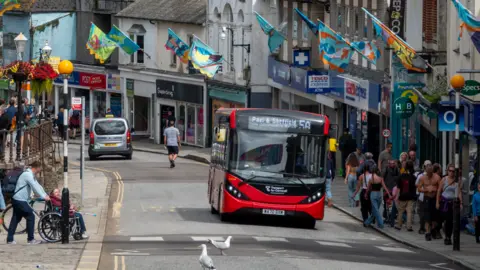 Getty Images
Getty Images
£2 cap on single bus fares in England to rise to £3 from January5p cut to fuel duty on petrol and diesel, due to end in April 2025, kept for another year
Housing

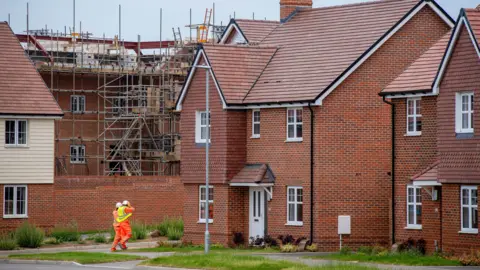 Getty Images
Getty Images
Current affordable homes budget, which runs until 2026, boosted by £500mSocial housing providers to be allowed to increase rents above inflation under multi-year settlement
Wages, benefits and pensions
Legal minimum wage for over-21s to rise from £11.44 to £12.21 per hour from AprilRate for 18 to 20-year-olds to go up from £8.60 to £10, as part of a long-term plan to move towards a "single adult rate"Eligibility widened for the allowance paid to full-time carers, by increasing the maximum earnings threshold from £151 to £195 a week
UK debt, inflation and economic growth

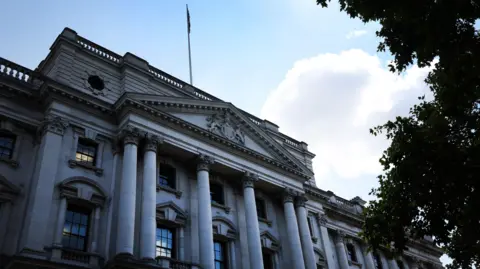 Getty Images
Getty Images
Office for Budget Responsibility predicts the UK economy will grow by 1.1% this year, 2% next year, and 1.8% in 2026Inflation predicted to average 2.5% this year, 2.6% next year, before falling to 2.3% in 2026
Government spending and public services
Extra £1.57bn next year for the NHS in England, to pay for surgical hubs, scanners and radiotherapy machines
Other measures
£11.8bn allocated to compensate victims of the infected blood scandal, with £1.8bn set aside for wrongly prosecuted Post Office sub-postmasters

 Movie
Movie 3 months ago
63
3 months ago
63 
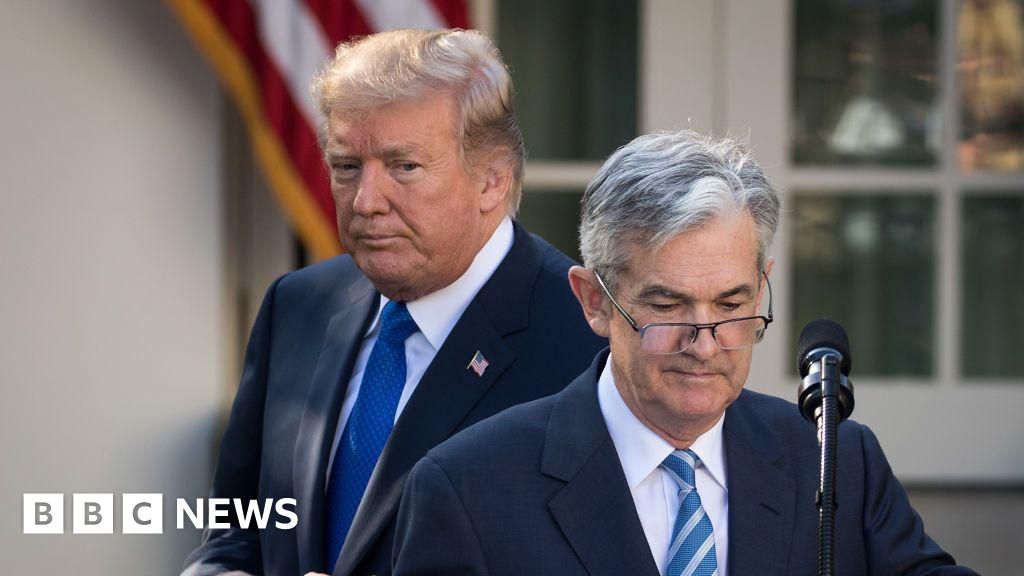
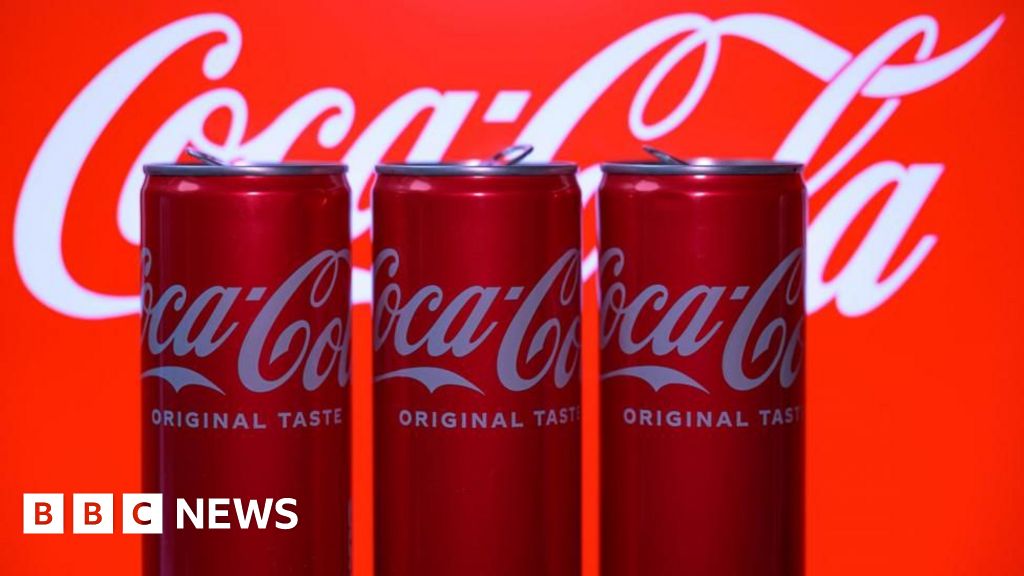
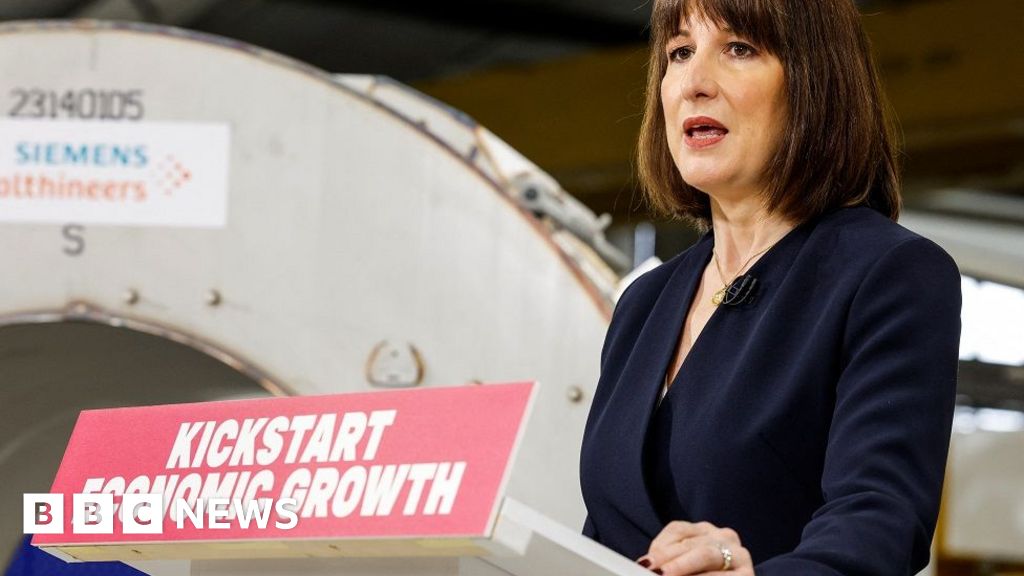
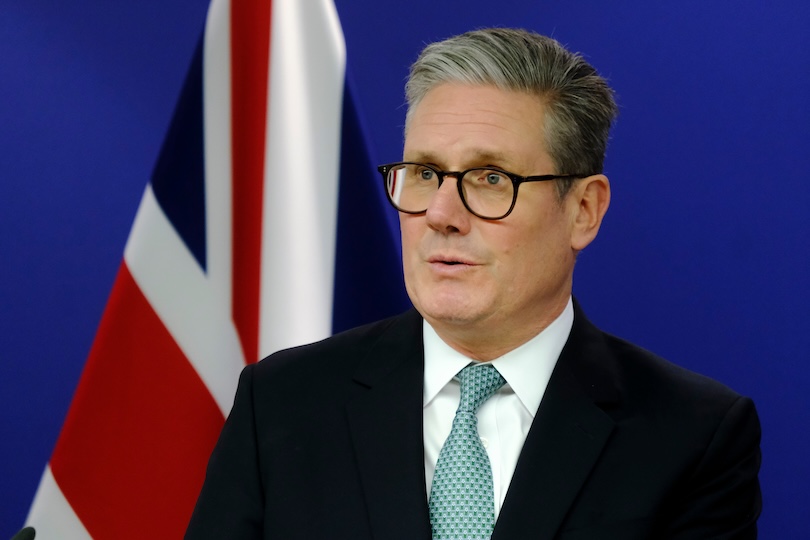

![Presidents Day Weekend Car Sales [2021 Edition] Presidents Day Weekend Car Sales [2021 Edition]](https://www.findthebestcarprice.com/wp-content/uploads/Presidents-Day-Weekend-car-sales.jpg)



 English (United States)
English (United States)